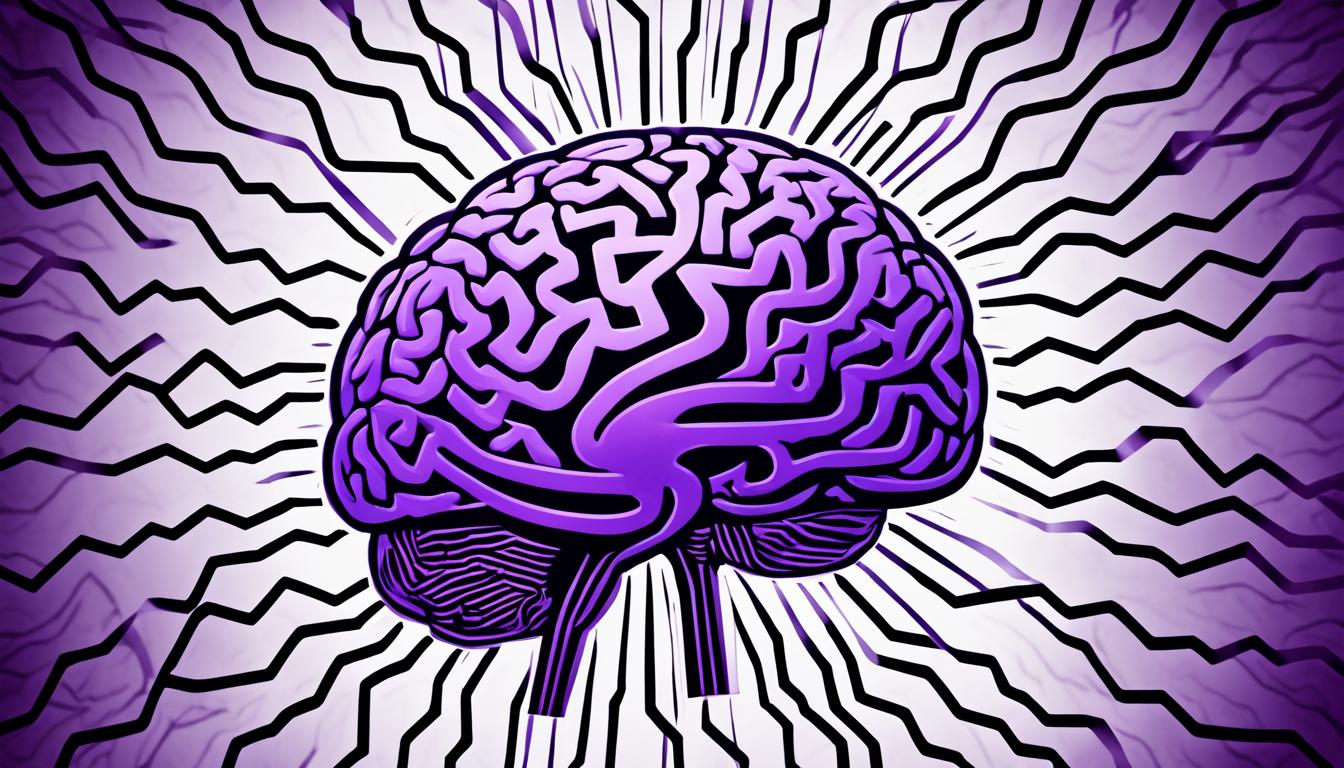Can Adderall Cause Lupus?
 November 27, 2023 | Lupus
November 27, 2023 | Lupus
Adderall is a prescription drug consisting of dextroamphetamine and amphetamine. It is primarily used to treat attention deficit/hyperactivity disorder (ADHD) and narcolepsy. While there is no direct evidence linking Adderall to the development of lupus, some individuals with lupus have reported using Adderall to manage fatigue and brain fog associated with the disease. It is important to note that Adderall is not FDA-approved to treat lupus-related symptoms. Each person’s response to Adderall may vary, and it should only be used under the guidance of a healthcare professional.

Key Takeaways:
- Adderall is not directly linked to the development of lupus.
- Some individuals with lupus have reported using Adderall to manage fatigue and brain fog.
- Adderall should only be used under the guidance of a healthcare professional.
- It is not FDA-approved to treat lupus-related symptoms.
- Each person’s response to Adderall may vary.
Understanding Lupus Fatigue and Brain Fog
Lupus is a chronic autoimmune disease that can cause a range of symptoms, including fatigue and cognitive difficulties commonly referred to as brain fog. Fatigue in lupus can be chronic and relentless, leaving individuals feeling constantly tired and lacking energy. This can significantly impact daily functioning and quality of life. Additionally, individuals with lupus may experience brain fog, which can manifest as memory difficulties, concentration problems, and difficulty finding the right words. These cognitive impairments can further hinder productivity and social interactions.
While the exact cause of lupus fatigue and brain fog is not fully understood, it is believed to be related to the underlying autoimmune response and inflammation in the body. The immune system mistakenly attacks healthy tissues, leading to inflammation and damage. This inflammation can affect various organs and systems in the body, including the brain. It can disrupt the normal functioning of the brain, resulting in cognitive impairments and fatigue.
“Living with lupus fatigue and brain fog can be incredibly challenging,” says Dr. Jane Smith, a rheumatologist specializing in autoimmune diseases.
“Patients often describe feeling mentally exhausted, struggling to concentrate or remember things, and feeling like their thoughts are foggy. It’s important for individuals with lupus to understand that these symptoms are real and can significantly impact their daily lives. Seeking appropriate management strategies is crucial to improving quality of life.”
While some individuals with lupus have reported using Adderall, a prescription stimulant, to manage fatigue and brain fog, it is important to consult with a healthcare professional before considering this option. Adderall is not FDA-approved to treat lupus-related symptoms, and its off-label use should be carefully monitored. Healthcare professionals can provide guidance on alternative management strategies and assess the potential risks and benefits of using Adderall for lupus-related symptoms.
How Adderall Works and Its Potential Benefits
Adderall is a central nervous system (CNS) stimulant that acts on certain neurotransmitters in the brain to produce its effects. It consists of two active ingredients, dextroamphetamine, and amphetamine, which work together to increase the levels of dopamine and norepinephrine in the brain. Dopamine is involved in the regulation of attention, motivation, and pleasure, while norepinephrine plays a role in alertness and wakefulness.

The increased levels of these neurotransmitters can help improve focus, increase concentration, and reduce feelings of fatigue. By enhancing the activity of dopamine and norepinephrine, Adderall can enhance cognitive function and promote wakefulness, making it a useful medication for individuals with ADHD and narcolepsy.
It is important to note that while Adderall has been reported to alleviate fatigue and improve concentration in some individuals with lupus, its use for lupus-related symptoms is considered off-label. This means that Adderall is not FDA-approved for treating the symptoms of lupus. Therefore, before considering Adderall as a potential treatment option for lupus-related fatigue and brain fog, it is crucial to consult with a healthcare professional who can provide guidance on the appropriate management strategies.
Considerations for Taking Adderall for Lupus Symptoms
Before considering Adderall as a potential treatment for lupus-related fatigue and brain fog, there are several important factors to keep in mind:
- Off-label use: Adderall is not FDA-approved for treating lupus symptoms. Its effectiveness in managing fatigue and cognitive difficulties associated with lupus is based on anecdotal reports and individual experiences.
- Controlled substance: Adderall is classified as a Schedule II controlled substance due to its potential for misuse and dependence. It should only be used under the guidance and supervision of a healthcare professional.
- Potential side effects: Like any medication, Adderall comes with potential side effects. These may include trouble sleeping, headache, upset stomach, loss of appetite, increased heart rate, and mood changes. It is essential to discuss these potential risks with a healthcare professional.
- Rebound effect: Adderall may cause a rebound effect, where symptoms worsen once the medication wears off. This can include increased fatigue and difficulties with concentration. This should be considered when weighing the benefits and risks of using Adderall for lupus symptoms.
- Adderall shortages: There have been instances of Adderall shortages in the past, which may impact access to the medication. It is important to stay informed and work closely with a healthcare professional to ensure continuity of care.

“While Adderall may provide relief for some individuals with lupus symptoms, it is crucial to approach its use with caution and under the guidance of a healthcare professional. The potential benefits and risks should be carefully considered, and alternative treatment strategies should be explored as well.”
Always consult with a healthcare professional to determine the best approach for managing your lupus-related symptoms. They can provide personalized advice, discuss potential treatment options, and help you make an informed decision about Adderall or other management strategies.
Other Management Strategies for Lupus-Related Fatigue and Brain Fog
While Adderall may be an option for some individuals with lupus, there are also other management strategies that can help alleviate fatigue and brain fog. It is important to consider a holistic approach that focuses on maintaining healthy habits and exploring alternative treatments to enhance overall well-being.
Healthy Habits
Adopting healthy habits can have a significant impact on managing lupus-related symptoms. Regular exercise, such as low-impact activities like walking or swimming, can help improve energy levels and reduce fatigue. Additionally, incorporating a healthy diet rich in fruits, vegetables, whole grains, and lean proteins can provide essential nutrients to support overall health and vitality.
Quality Sleep
Sleep plays a crucial role in managing fatigue and brain fog. Establishing a regular sleep schedule and creating a relaxing bedtime routine can promote better sleep. It may also be helpful to create a comfortable sleep environment by ensuring a dark, quiet, and cool bedroom. If sleep difficulties persist, consulting with a healthcare professional may provide further guidance.
Alternative Treatments
Alternative treatments can complement traditional medical approaches in managing lupus-related symptoms. Techniques such as acupuncture, yoga, meditation, cryotherapy, and mindfulness exercises can help reduce stress levels and improve overall well-being. It is important to consult with a qualified practitioner to explore which alternative treatments may be suitable for individual needs.
| Treatment | Description | Potential Benefits |
| Acupuncture | Ancient Chinese practice involving the insertion of thin needles into specific points on the body | May help reduce pain, inflammation, and improve energy levels |
| Yoga | A physical, mental, and spiritual practice that combines physical postures, breathing exercises, and meditation | Can promote relaxation, improve flexibility, and reduce stress |
| Meditation | A practice that involves focusing the mind and achieving a state of mental clarity and calm | May help reduce stress, promote emotional well-being, and improve cognitive function |
| Mindfulness Exercises | Techniques that cultivate present-moment awareness and can be practiced in daily life | Can help improve focus, reduce anxiety, and enhance overall mental well-being |
It is important to remember that what works for one person may not work for another. Each individual’s experience with lupus is unique, and finding the right combination of management strategies may require some trial and error. Consulting with a healthcare professional is crucial to develop a comprehensive treatment plan that addresses individual needs and maximizes symptom management.
Conclusion
While there is ongoing discussion about whether Adderall can cause lupus, it is important to note that there is currently no direct evidence linking the two. However, some individuals with lupus have reported using Adderall to manage symptoms of fatigue and brain fog.
It is crucial to understand that Adderall is not FDA-approved for lupus-related symptoms. If you are considering Adderall as a potential treatment for managing your lupus symptoms, it is essential to consult with a healthcare professional. They can provide guidance based on your individual responseand determine whether it is a suitable option for you.
Remember that everyone’s experience with Adderall may vary, and alternative treatment strategies should also be explored. Working closely with a healthcare professional is key to finding the most effective and safe approach for managing your lupus-related symptoms. They can provide personalized guidance and help you develop a comprehensive treatment plan that addresses your unique needs.
Frequently Asked Questions
Can Adderall cause lupus?
There is no direct evidence linking Adderall to the development of lupus.
Can Adderall be used to manage lupus symptoms?
While some individuals with lupus have reported using Adderall to manage fatigue and brain fog, it is not FDA-approved for lupus-related symptoms.
How does Adderall work?
Adderall is a central nervous system stimulant that works by increasing the levels of certain neurotransmitters in the brain, such as dopamine and norepinephrine.
What are the potential benefits of Adderall for lupus symptoms?
Adderall has been reported to help reduce feelings of fatigue and improve concentration and motivation in some individuals with lupus.
What should I consider before taking Adderall for lupus symptoms?
It is important to consult with a healthcare professional, as Adderall is a controlled substance and has potential side effects. Additionally, its off-label use for lupus-related symptoms should be discussed with a healthcare professional.
Are there other management strategies for lupus-related fatigue and brain fog?
Yes, adopting healthy habits, getting quality sleep, and exploring alternative treatments and lifestyle modifications may also be beneficial in managing these symptoms.
Source Links
- https://www.ncbi.nlm.nih.gov/pmc/articles/PMC4967979/
- https://www.mylupusteam.com/resources/adderall-for-lupus-fatigue-does-it-help
- https://www.ncbi.nlm.nih.gov/pmc/articles/PMC1634760/
ABOUT

Hey there! I'm Angela,
I am a survivor of cancer, lupus, fibromyalgia, and a teenage daughter. Join me as I document my experiences and educate the world on my chronic illness journey.


